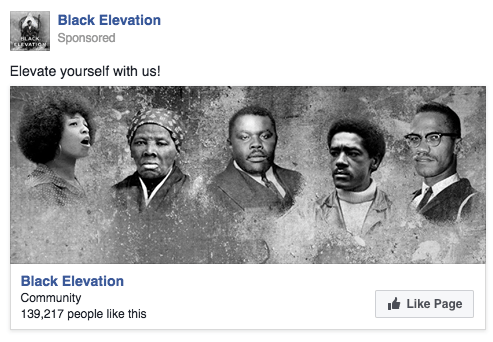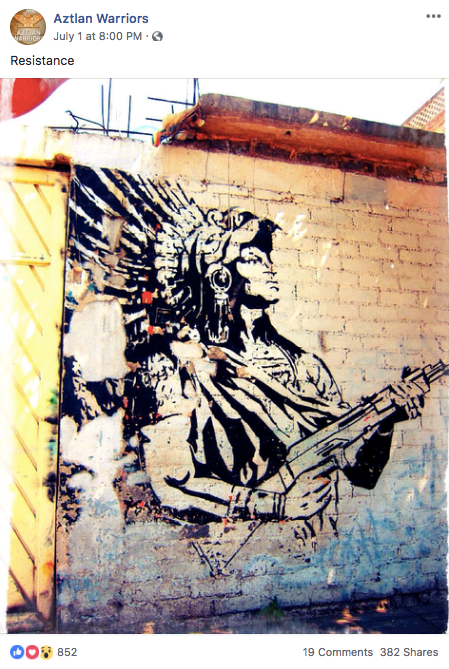In a newsroom post Tuesday, Facebook revealed that it has detected evidence of “coordinated inauthentic behavior” designed to influence U.S. politics on its platform.
According to Facebook’s head of Cybersecurity, Policy Nathaniel Gleicher, the company first identified the activity two weeks ago. So far, the activity encompasses eight Facebook Pages, 17 profiles and seven accounts on Instagram. Facebook stated that the activity “violate[s] our ban on coordinated inauthentic behavior.”
Facebook has declined to attribute the new findings to the Russian government-linked Internet Research Agency (IRA), but an IRA account was found to be a co-admin on one of the newly outed fake events “for only seven minutes.”
Facebook has been in contact with Congress and law enforcement about the discovery, which suggests that social platforms should expect to again detect the kind of coordinated disinformation campaigns that targeted the 2016 election around U.S. midterm elections this November. The company stated that more than 290,000 accounts followed one of the Pages it identified. The Pages in question were created starting in March 2017 and most recently in May of 2018.
The most popular Pages displaying this kind of behavior were “Aztlan Warriors,” “Black Elevation,” “Mindful Being” and “Resisters.” The other Pages had less than 10 followers each and the Instagram account did not have any followers. That does not necessarily discount other kinds of potential activity, like commenting and messaging.
Like the fake Russia-linked ads and Pages formerly released through the House and Senate, the new content specifically amplifies American tensions around race. The examples released by Facebook appear to mostly target the US political left. Some examples contain explicitly anti-Trump content, but most offer appeals to racial identity targeting black and Mexican-American Facebook users.

According to Facebook, “They ran about 150 ads for approximately $11,000 on Facebook and Instagram, paid for in US and Canadian dollars” between April 2017 and June of this year. The Pages also made around 30 Facebook events.
As Gleicher writes in the post, these accounts are operating more cautiously than the infamous Russian disinformation accounts around the 2016 election:
For example they used VPNs and internet phone services, and paid third parties to run ads on their behalf. As we’ve told law enforcement and Congress, we still don’t have firm evidence to say with certainty who’s behind this effort. Some of the activity is consistent with what we saw from the IRA before and after the 2016 elections. And we’ve found evidence of some connections between these accounts and IRA accounts we disabled last year, which is covered below. But there are differences, too. For example, while IP addresses are easy to spoof, the IRA accounts we disabled last year sometimes used Russian IP addresses. We haven’t seen those here.
Still, the newly discovered wave of activity pushing polarizing political content on Facebook strongly echoes previous content linked to the IRA. The evidence is sufficient for Senate Intelligence Committee Vice Chairman Mark Warner, a prominent figure in the investigation into tech’s culpability in disseminating of Russian disinformation, to make the connection.
“Today’s disclosure is further evidence that the Kremlin continues to exploit platforms like Facebook to sow division and spread disinformation, and I am glad that Facebook is taking some steps to pinpoint and address this activity,” Warner said in a statement provided to TechCrunch.
from TechCrunch https://ift.tt/2OziWUC

0 coment�rios: